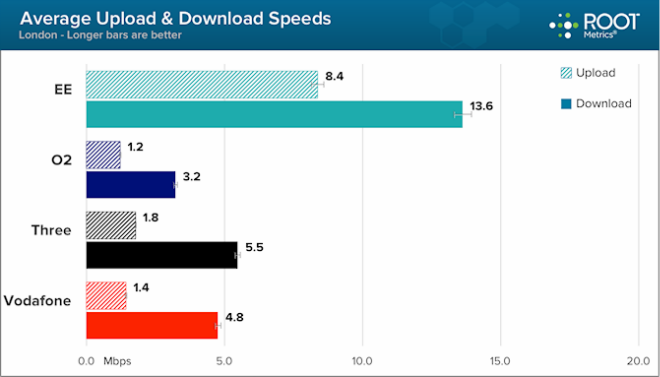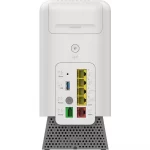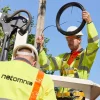EE Extends its 3G and 4G Mobile Broadband Speed Lead in London UK

The final RootMetrics study of Mobile Broadband speeds in London, which conducted more than 86,000 tests across the city, has confirmed that EE remain the fastest operator for mobile Internet performance thanks to their comparatively advanced 4G (LTE at 1800MHz) network. By contrast O2, Three UK and Vodafone were well off the pace.
The research combines both 3G and 4G performance into a single chart, which is a shame because we suspect that the results for 3G speeds would almost certainly deliver a different result; Three UK are known to be particularly strong in that department. Similarly a 4G-only chart would have been useful but isn’t provided (i.e. slow 3G could be pulling O2 and Vodafone down).
Advertisement
It’s also interesting to note that the final report has delivered a sharp knock to the network speeds of both O2 and Vodafone which, thanks to their newly launched 4G networks, originally came much closer to EE in the preliminary September 2013 study (here). This could be due to any number of things such as the significantly larger sample size or congestion from new users.
In order to reflect how the performance for each network has changed we’ve also included the original April 2013 Results (here) below for comparison with the latest September to October 2013 data (note: both conducted a similar number of tests).
September to October 2013 Results

April 2013 Results
Advertisement

Overall EE has clearly managed to benefit from its double speed upgrade to 150Mbps (max theoretical peak speed) and they’re already preparing to trial a 300Mbps upgrade, which should keep them ahead of their rivals in supporting cities for quite a while. Both O2 and Vodafone have also been given a big boost by their new 4G networks but these have only just gone live and should improve further in the future. By comparison Three UK are still a month or so away from launching 4G but their 3G network still seems to be doing a fairly good job.
In addition EE also came top for Network Reliability (checking for service interruption or failure) with a score of 81.3 out of 100, which compares with 78.6 for O2, 72.8 for Three UK and shockingly just 65.3 for Vodafone. Oddly this is dramatically lower than the first April 2013 study (here) where the lowest score was from Vodafone but that was still a respectable 92.3 out of 100. No explanation for this difference is proposed.
Mark is a professional technology writer, IT consultant and computer engineer from Dorset (England), he also founded ISPreview in 1999 and enjoys analysing the latest telecoms and broadband developments. Find me on X (Twitter), Mastodon, Facebook, BlueSky, Threads.net and Linkedin.
« BT Grabs 6.96 Million UK Retail Broadband Subscribers as 1.7m Take FTTC





















































Comments are closed